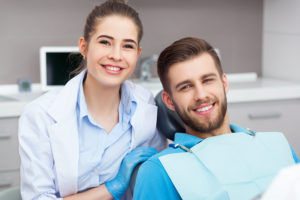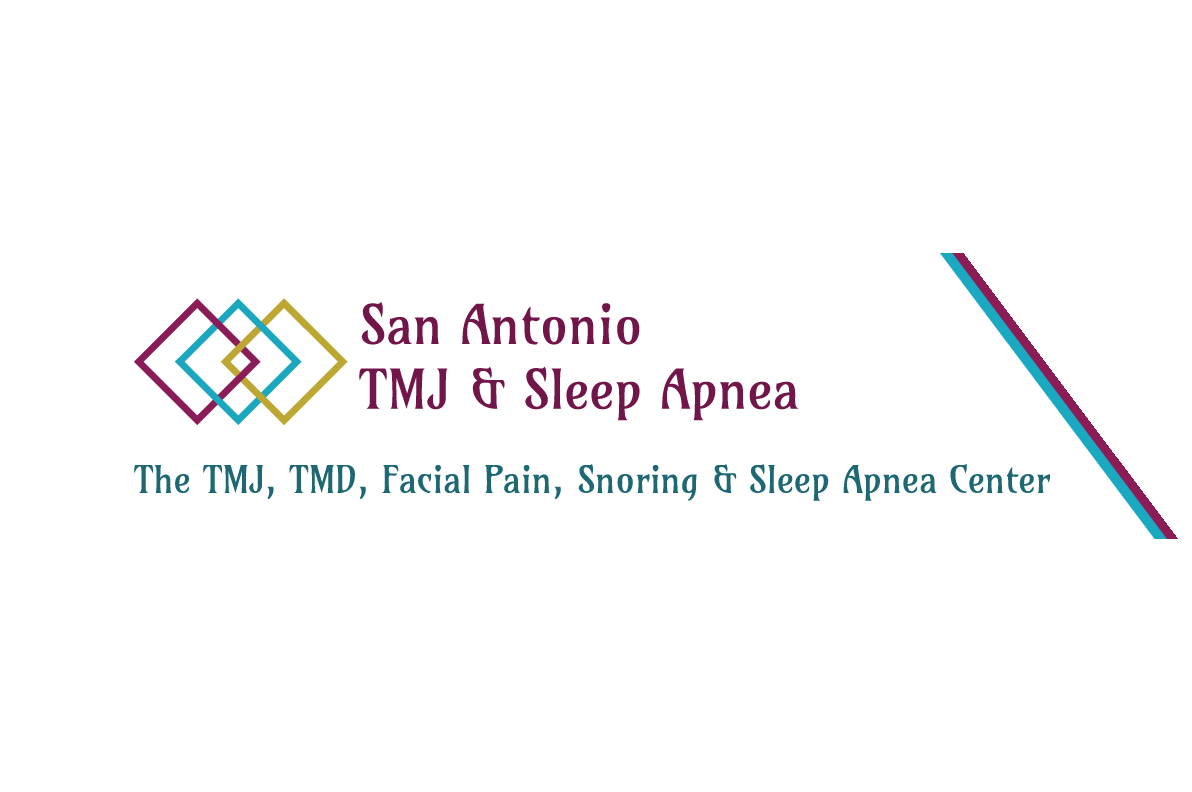To learn more about our services and what we can do for you, or to make an appointment, call us today!
Who should treat you?
We Care About You.
We strive to give patients the best care and experience at San Antonio TMJ & Sleep Apnea.
For TMD Patients
 It is recommended that patients be treated by a general dentist with appropriate expertise in the diagnosis and management of TMD problems.
It is recommended that patients be treated by a general dentist with appropriate expertise in the diagnosis and management of TMD problems.- Providers should have extensive clinical and didactic experience or have completed a post-doctoral program in TMD. Being a member or Fellow of the American Academy of Orofacial Pain (AAOP) and a Diplomate of the American Board of Orofacial Pain are indicators of scientifically-based expertise. Caution is advised regarding the following attributes:
- Membership in facial pain organizations of questionable scientific quality, such as the American Academy of Craniofacial Pain, the American Academy of Craniomandibular Disorders, and the American Equilibration Society.
- Simply taking Continuing Education Courses in TMD does not confer proficiency/expertise. Caution is advised when seeking care from members of study clubs, such as the Las Vegas Institute (LVI), the FACE Institute, and the Pankey Institute, as these organizations have a history of unscientific treatment approaches.
- Patients are also cautioned against seeking primary care from specialists. Their bias is to steer patients into treatments they provide. Specialists are perceived to have greater expertise, however, this expectation holds true only with respect to the content within the specialist's specialty. If your TMD provider performs orthodontic care, then orthodontic therapy will be a likely solution to your TMD problem. Likewise, if an Oral & Maxillofacial Surgeon is your provider, invasive therapies such as arthrocentesis and TMJ surgeries are more likely to be suggested TMD solutions. Facial Pain, TMD, and Sleep Apnea are unspecialized disciplines. Specialists are not usually experts in these areas, often having received suboptimal advanced training in these fields.
- Physical therapists and chiropractors have restricted diagnosis and treatment skills and their therapies fail to address the cause of these problems. As such, they are not recommended as primary TMD providers.
- Patients are advised to avoid or be wary of providers who:
- Collect unnecessary diagnostic data, i.e. electromyography, sonography, kinesiology, sophisticated joint imaging (C-Ts and MRIs), etc.
- Propose that TMD problems are life-long disorders requiring life-long therapy.
- Recommend 24-hour a day splint or night guard wear.
- Describe themselves as a "neuromuscular dentist".
- Suggest that your bite is the cause of the TMD problem.
- Want to change your bite with occlusal adjustments, crowns, or braces to correct the TMD problem.
- Suggest that your displaced TMJ disk must be recaptured with splint therapy or TMJ surgery.
- Recommend invasive therapies, such as occlusal adjustment, arthrocentesis, and TMJ surgery before the use of reversible conservative therapies, including splints, medications, and exercises, etc.
- Recommend eccentric approaches to the management of your TMJ problem, such as chiropractic therapies, physical therapy, holistic medicine, acupuncture, etc.
- Recommend using partial coverage splints, such as Gelb appliances which cover only the lower back teeth, and NTI splints which cover only the upper front teeth.
- Recommend using anterior repositioning splints that hold your lower jaw forward.
- Suggest that all TMD problems/bruxism are caused by sleep apnea. This is the latest invalid assertion.
For Idiopathic Tooth Pain (Neuralgia) Patients
- It is recommended that patients be treated by a general dentist who focuses on the diagnosis and treatment of facial pain.
- Qualified general dentists have more training and expertise in diagnosis and management.
- Most neurologists and neurosurgeons focus mainly on classic neuralgias, hence other forms of neuropathic pain are not recognized.
- For classic neuralgias, either a dentist who focuses on facial pain management or a neurologist is suggested.
- Patients are advised to avoid or be cautious of continued unsuccessful dental treatments to correct tooth pain, such as repeated root canal therapies and/or extractions.
- When both the patient and dentist believe the pain is originating in the teeth based on signs and symptoms, a series of unsuccessful dental treatments is common. Such dental treatments are common prior to recognizing that the pain is not coming from the teeth and that dental care will not solve the problem.
For Snoring and Sleep Apnea Patients
- It is recommended that patients be treated by a dentist who focuses on sleep apnea management. Generally, treatment is performed after the patient has been diagnosed by polysomnography, either in a sleep lab or via home monitoring. Many medical insurers do not reimburse for treatment without such a diagnosis.
- Patients should be aware that most physicians recommend only CPAP (Continuous Positive Airway Pressure) to treat sleep apnea. Though CPAP is an effective therapy, it has poor patient compliance (approximately 50%), because of the myriad of problems patients encounter adjusting to the device. For patients with mild and moderate sleep apnea, oral appliances work as well as CPAP. They are slightly less effective for patients with severe OSA. Other advantages of the oral appliances compared to CPAP include:
- less expensive
- more easily transportable
- easier to adjust to
- Despite these advantages and comparable efficacy, the oral appliances (Mandibular Advancement Device or MAD) are commonly not mentioned as a therapeutic option by physicians. You should be aware of oral appliance treatment option and request a referral for the oral appliance if CPAP is not desired or is intolerable.
- There are many unproven Sleep Apnea therapies (both surgical and non-surgical). Patients are cautioned about pursuing invasive or eccentric approaches.
